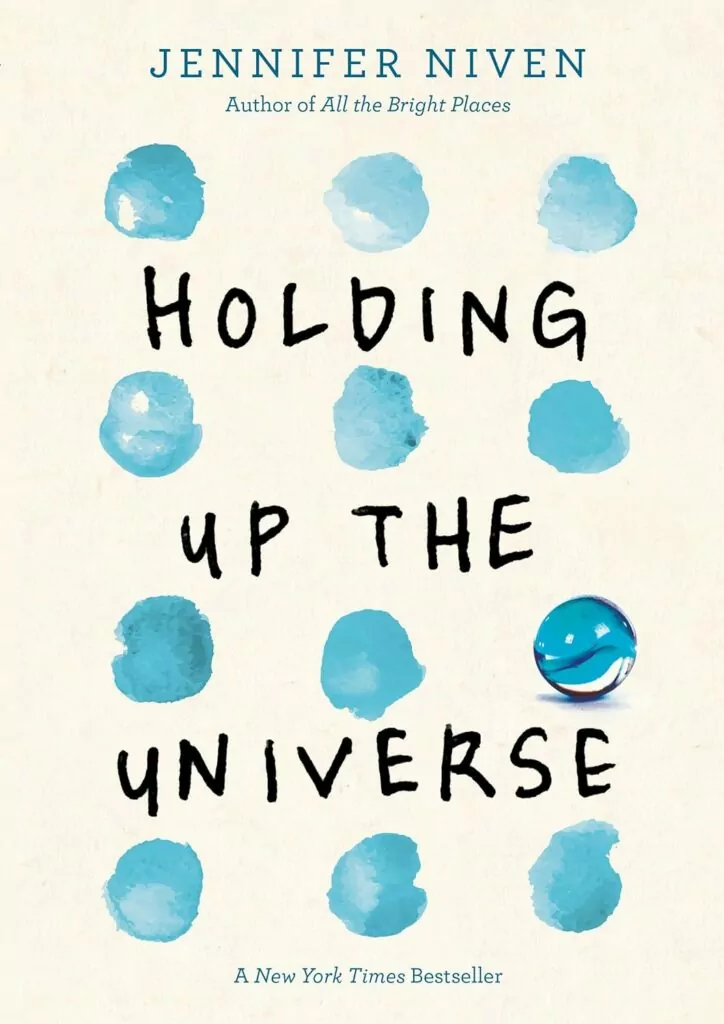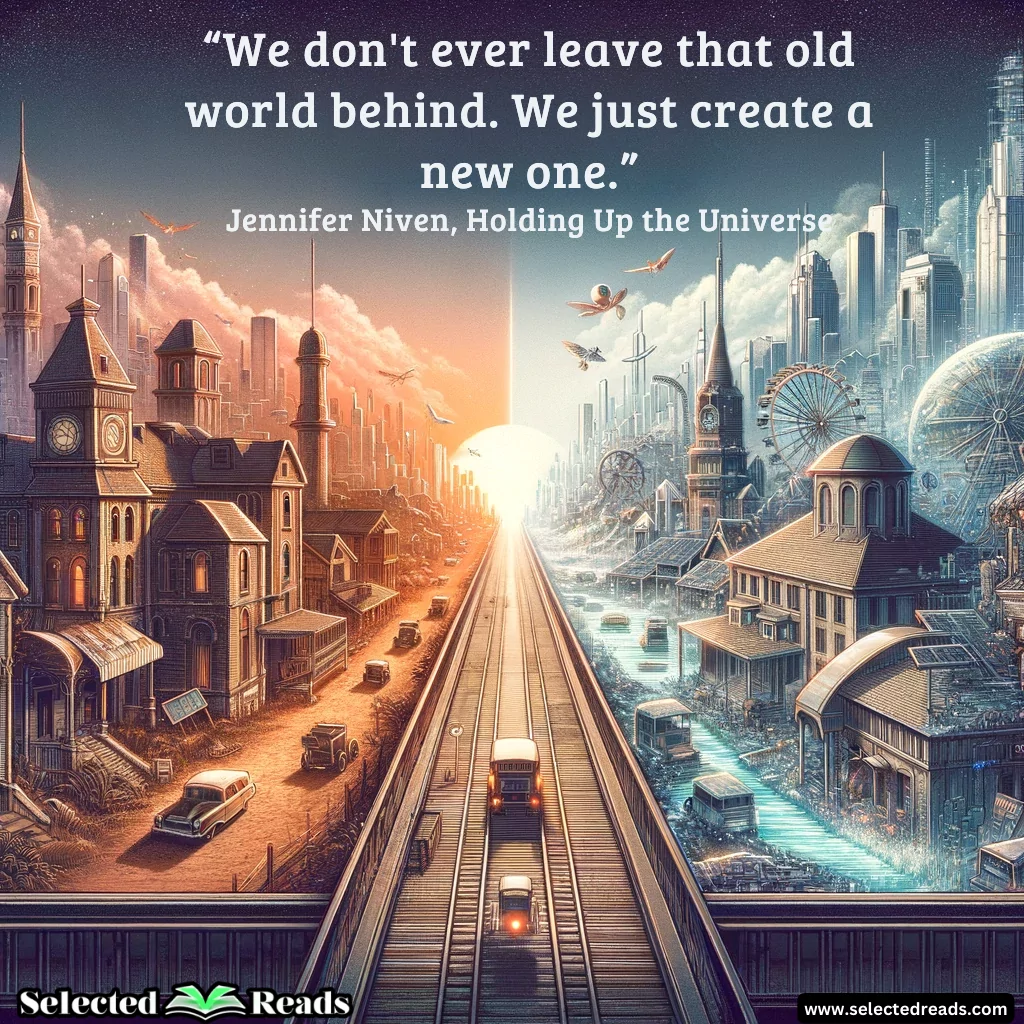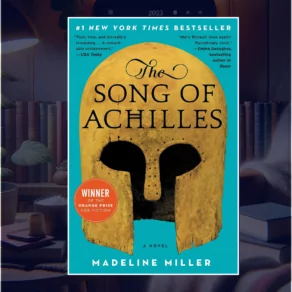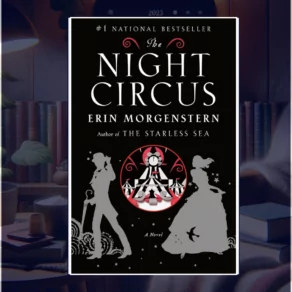In our exploration of “Holding Up the Universe” by Jennifer Niven, we’ve delved into various aspects of this poignant and thought-provoking novel. We started with an extended summary, providing an overview of the story’s main themes and plot. This was followed by an in-depth look at the characters, particularly the protagonists Libby Strout and Jack Masselin, who bring the story to life with their unique challenges and strengths.
We also included a set of comprehensive book club questions designed to spark insightful discussions and deeper understanding of the novel’s key themes. This multifaceted exploration aims to provide a well-rounded understanding of Niven’s work, offering various lenses through which to view and appreciate this compelling story.
Holding Up the Universe Summary
“Holding Up the Universe” by Jennifer Niven is a poignant and deeply touching young adult novel that delves into the complexities of identity, acceptance, and the transformative power of human connection.
The story revolves around two central characters: Libby Strout and Jack Masselin, each grappling with their unique challenges. Libby, once labeled as “America’s Fattest Teen,” is dealing with the aftermath of her mother’s death, her weight, and the societal prejudices that come with it. She’s a character of immense strength and vulnerability, working to overcome her grief and the public’s perception of her. Her journey isn’t just about weight or appearances; it’s a deeper exploration of self-acceptance and resilience. Libby’s courage in facing high school and her desire for a life filled with every possibility is a testament to her character’s growth and determination.
Jack Masselin, on the other hand, presents a façade of confidence and charm, hiding his struggle with prosopagnosia, a condition that impairs his ability to recognize faces. This secret battle with his condition adds a layer of complexity to his character. Jack’s journey is one of self-discovery and learning to navigate the world with his unique challenge. He embodies the struggle of fitting in while dealing with something that sets him apart, something that’s invisible to others but deeply affects his daily interactions and relationships.
Their paths cross in a less-than-ideal way, through a cruel high school game that leads to group counseling and community service, but it’s this intersection that becomes pivotal in their lives. As Libby and Jack are forced to spend time together, their initial antagonism gradually gives way to an understanding and a unique bond. This relationship is a key aspect of the novel, showcasing how genuine connections can help us feel less alone and more understood.
Niven’s narrative is powerful in its ability to weave together themes of identity, the struggles of adolescence, and the impact of unseen challenges. The book doesn’t just tell a story of two teenagers; it opens up a conversation about seeing and loving people for who they truly are, beyond the superficial judgments and labels society often imposes.
Niven doesn’t shy away from the realities of their struggles, yet she infuses the narrative with hope and the possibility of change. It’s a story that resonates with anyone who has ever felt misunderstood or underestimated. The novel is a reminder of the power of empathy and the importance of seeing beyond the surface to the person underneath.
In a world where young adults are often navigating their identity and place in society, “Holding Up the Universe” offers a perspective that is both grounding and uplifting. It’s a novel that speaks to the heart of what it means to be human – the desire to be seen, understood, and accepted.
As an educator and someone passionate about literature that resonates with young adults, this book is a remarkable example of how stories can shape understanding and empathy. Niven’s work is not just a compelling read but also a valuable tool for discussing important themes with students and young readers.
Related: The Ballad of Songbirds and Snakes Summary
Holding Up the Universe Characters
In “Holding Up the Universe,” Jennifer Niven creates two incredibly vivid and relatable main characters, Libby Strout and Jack Masselin, each with their own unique struggles and strengths. Let’s take a closer look at them:
- Libby Strout: Once labeled as “America’s Fattest Teen,” Libby is a character of immense depth and resilience. After facing public scrutiny and personal tragedy with the loss of her mother, Libby emerges as a symbol of strength. She’s not just confronting issues related to her weight; she’s also battling societal perceptions and her own inner challenges. Libby’s journey is about finding self-acceptance and courage. She’s determined to live life to the fullest, showing an inspiring level of optimism and bravery. Libby embodies the complexity of someone who’s been through immense hardship yet remains hopeful and eager to embrace all the possibilities that life has to offer.
- Jack Masselin: Jack is the quintessential cool kid on the surface, with a swagger that hides his vulnerabilities. His secret battle with prosopagnosia, or face blindness, adds a unique twist to his character. This condition means he can’t recognize faces, not even those of his own family, which deeply impacts his social interactions and self-perception. Jack is a character who embodies the struggle of maintaining a façade while dealing with an invisible challenge. Throughout the story, he evolves from someone who is afraid of getting too close to others, to someone who learns the value of genuine connections and authenticity.
The dynamic between Libby and Jack is central to the story. Initially brought together under challenging circumstances, their relationship develops into a deep connection that changes both of their lives. Through each other, they learn about acceptance, empathy, and the true meaning of seeing someone for who they are.
Niven’s portrayal of these characters is notable for its sensitivity and realism. She doesn’t just present their struggles; she also highlights their growth, humor, and the nuances that make them relatable to readers, especially young adults. Both Libby and Jack represent different aspects of the teenage experience – from dealing with loss and self-esteem issues to navigating complex social dynamics and personal challenges.
Holding Up the Universe Quotes
Here are some interesting quotes that capture the main themes of
- “We don’t ever leave that old world behind. We just create a new one.” ― Jennifer Niven, Holding Up the Universe
- “Dear friend, You are not a freak. You are wanted. You are necessary. You are the only you there is. Don’t be afraid to leave the castle. It’s a great big world out there. Love, a fellow reader” ― Jennifer Niven, Holding Up the Universe
- “I think what an amazing world this would be if we all danced everywhere we went.” ― Jennifer Niven, Holding Up the Universe
- “We’re all weird and damaged in our own way. You’re not the only one.” ― Jennifer Niven, Holding Up the Universe
- “We can’t fight another person’s battle, no matter how much we want to.” ― Jennifer Niven, Holding Up the Universe
- “This is what I know about loss. It doesn’t get better. You just get (somewhat) used to it.” ― Jennifer Niven, Holding Up the Universe
- “It’s my experience that the people who are most afraid are the ones who hide behind mean and threatening words.” ― Jennifer Niven, Holding Up the Universe
- “Everyone in my life is a stranger, and that includes me.” ― Jennifer Niven, Holding Up the Universe
- “You might not want to burn your bridges when you’re standing on an island.” ― Jennifer Niven, Holding Up the Universe
- “I’ve always thought you should be able to freeze time. This way you could hit the Pause button at a really good point in your life so that nothing changes” ― Jennifer Niven, Holding Up the Universe
- “You can’t stop living.” ― Jennifer Niven, Holding Up the Universe
- “Sometimes all I did all day was just wander around in my mind.” ― Jennifer Niven, Holding Up the Universe
- “As for the rest of you, remember this: YOU ARE WANTED. Big, small, tall, short, pretty, plain, friendly, shy. Don’t let anyone tell you otherwise, not even yourself. Especially yourself.” ― Jennifer Niven, Holding Up the Universe
- “One of the worst things a pretty girl can say to a fat girl is You look really pretty.” ― Jennifer Niven, Holding Up the Universe
Holding Up the Universe Book Club Questions
Here are some thought-provoking questions you could use:
- Character Analysis: How do Libby Strout and Jack Masselin each challenge the stereotypes or labels placed upon them? In what ways do they conform to these stereotypes, and how do they break free from them?
- Themes of Identity and Acceptance: How does the novel explore the theme of identity? Discuss how both main characters come to terms with who they are throughout the story.
- Impact of Prosopagnosia: Jack’s condition, prosopagnosia (face blindness), is a central part of his character. How do you think this condition affects his relationships and behavior? How does it contribute to the novel’s overall message?
- Libby’s Journey: Libby has faced significant challenges in her life, including her weight and the loss of her mother. How does her past shape her actions and outlook in the novel? In what ways is she a role model for resilience and self-acceptance?
- Jack and Libby’s Relationship: How does the relationship between Jack and Libby evolve throughout the novel? What do they learn from each other? Discuss how their relationship impacts their individual growth.
- Themes of Visibility and Invisibility: The novel deals with the idea of being seen and unseen in various ways. How does this theme play out in the lives of Libby and Jack? What does the novel say about the importance of being seen and understood?
- Family Dynamics: Consider the role of family in the novel. How do Libby and Jack’s family situations affect their characters and the choices they make?
- High School Setting: How does Jennifer Niven portray the high school experience in the novel? Discuss how the setting contributes to the story’s themes and character development.
- Literary Techniques: What are some notable literary techniques Niven uses in the novel? How do these techniques enhance the storytelling and themes of the book?
- Personal Reflection: Which character did you relate to more, and why? Were there any moments or aspects of their stories that particularly resonated with you?
- Overall Message: What do you think is the overall message or takeaway from “Holding Up the Universe”? How does this message relate to broader societal issues?
- Recommendation and Comparison: Would you recommend this book to others? Are there any other books you have read that are similar in themes or style to “Holding Up the Universe”?
Related: If He Had Been with Me Summary
Final thoughts
In conclusion, Jennifer Niven’s “Holding Up the Universe” is a profound examination of identity, acceptance, and the transformative power of human connection. Through the detailed summary, character analysis, and thought-provoking book club questions, we gain a deeper appreciation of the novel’s nuanced exploration of these themes. Niven’s characters, Libby and Jack, offer readers a mirror to reflect on their own experiences and a window to understand others’ struggles. This book is not only an engaging read but also a valuable resource for discussions around empathy, resilience, and the importance of seeing beyond the surface.











